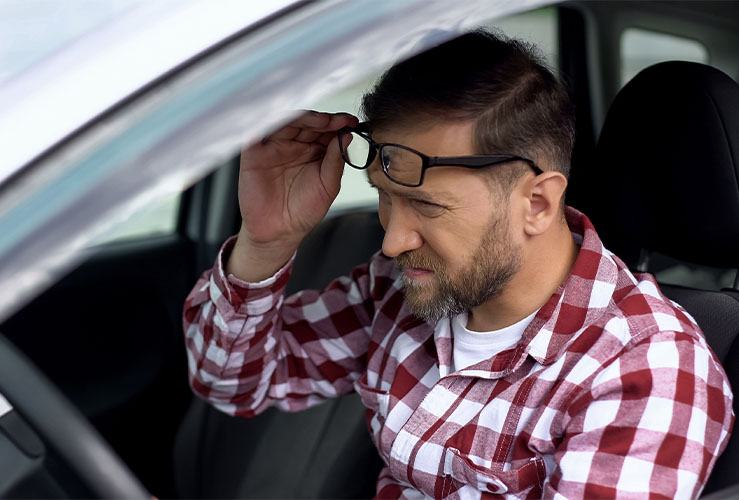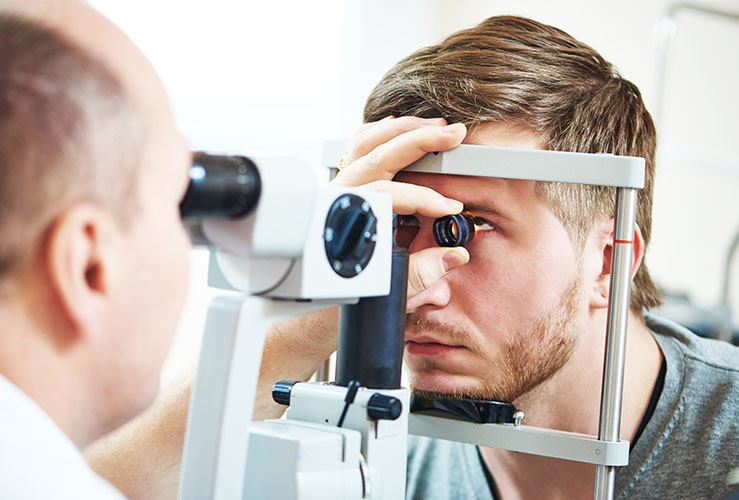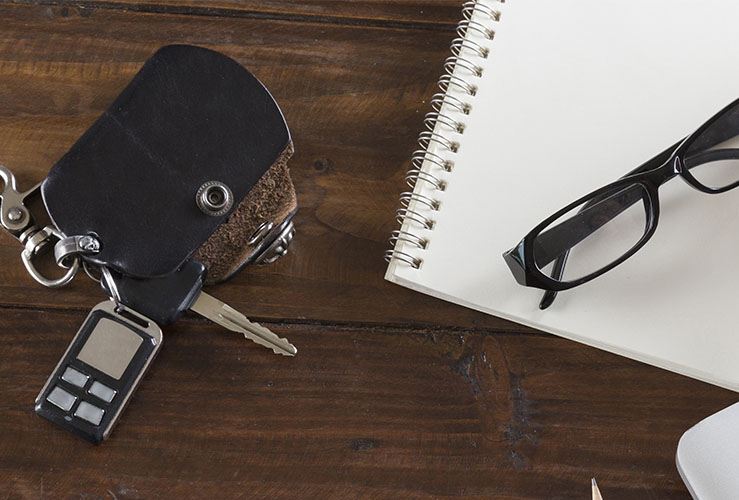Adequate vision is a legal requirement for all UK drivers. Poor eyesight poses obvious risks to the driver, their passengers, other road users and pedestrians, since it can make hazards difficult or impossible to identify.
With this in mind, regular eye tests are essential. You should have your eyes tested once every two years, or as your optician advises.

You must be able to read a number plate from a distance of 20m in good light (20.5m with old number plates). This equates to about 5 car lengths - so you can easily check your own eyesight.
Additionally, your field of vision must be adequate, and your visual acuity must be of least decimal 0.5 (6/12) on the Snellen scale. This can be achieved with the use of glasses or contact lenses if required, or with one eye if the driver only has sight in one eye.
If you have been told you need to wear glasses to drive, you must wear them at all times behind the wheel. If you do not, your motor insurance could be considered invalid. If you need to, keep an extra pair of glasses in your vehicle.

As mentioned, you should have your eyes tested every two years, or more if your optician recommends it.
In the UK you can get a free eye test if:
- You are 60 years old or more
- You been diagnosed with diabetes or glaucoma
- Your optician says you are at risk from glaucoma
- You are 40 years or over and a close relative has glaucoma
- You are on certain social security benefits
- You are 17, 18 or in full time education
Conditions that can impact a motorist's ability to drive:
- Macular Degeneration
- Glaucoma
- Diabetic Retinopathy
- Cataracts
- Blindness
Any condition that affects both eyes (or one eye if you are monocular), should be reported to the DVLA/DVA - except for long and short sightedness, and colour blindness.
Many people do not notice their eyesight has gotten poorer because deterioration is so gradual. In particular, older eyes take much longer to deal with glare than younger eyes.

Yes, police can conduct on-the-spot tests by the roadside, asking you to read a number plate from 20m away. If you fail this test they can advise that you are breaking the law if you continue to drive.
In this situation the police may act to revoke your license via the DVLA, which can potentially be carried out on the same day. This ability is known as “Cassie’s Law” - in memory of a young woman who was hit by a motorist who had only just failed a police roadside eyesight test; the police were in the process of getting the driver's license revoked when the collision occurred.




